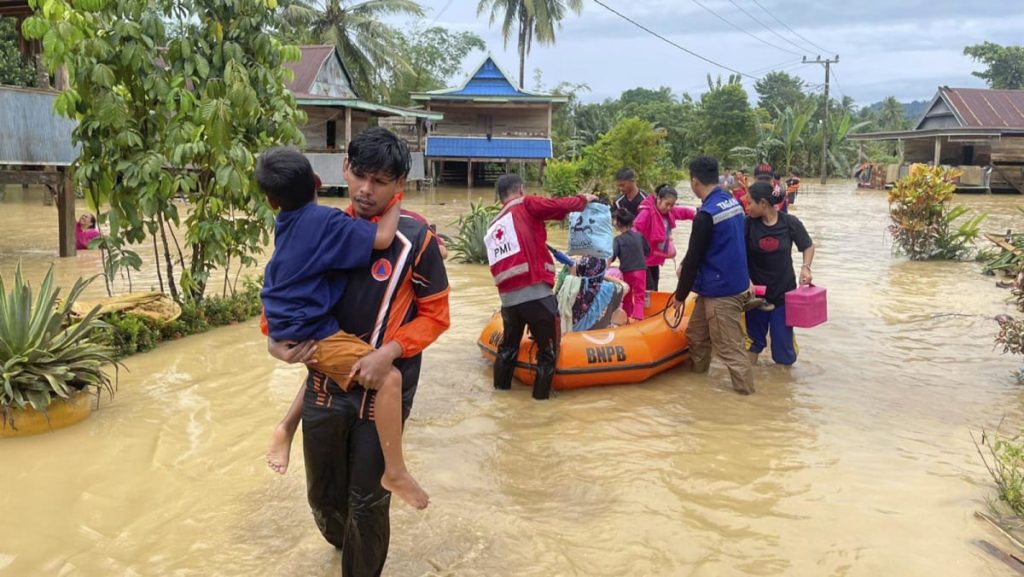At least 15 people have died due to landslides and flooding in central Indonesia, according to the country’s disaster agency. The landslides struck Luwu regency in South Sulawesi, with more than 100 houses seriously damaged and 42 swept away. In addition, four roads and one bridge were damaged, causing disruption and destruction in the area. Over 100 people were evacuated and more than 1,300 families were affected as authorities worked to provide assistance.
The rainy season in Indonesia often brings about landslides and flooding, exacerbated by deforestation in certain areas. Prolonged torrential rain has led to flooding in various parts of the archipelago nation, and can have devastating effects on communities. In Luwu regency, the floods affected more than 1,300 families and damaged over 1,800 houses. Although water levels have started to recede in some areas, the aftermath of the disaster will require significant recovery efforts from authorities.
In another area of South Sulawesi province, one person died and two others were injured as a result of the floods that struck on Friday. This adds to the toll of recent extreme weather events in Indonesia, which have caused significant loss of life and damage to property. Flash floods and landslides on Sumatra island in March claimed the lives of at least 30 people, with many still missing. The country has seen several instances of devastating natural disasters linked to the rainy season, such as the landslide and flooding near Lake Toba on Sumatra in December that resulted in the deaths of at least two people.
Experts have attributed the increased frequency and intensity of extreme weather events in Indonesia to climate change. The effects of climate change are becoming more apparent, with rising temperatures and changing weather patterns leading to more severe storms and flooding. As a result, communities in vulnerable areas are at greater risk of being affected by natural disasters like landslides and flooding. Authorities and disaster management agencies play a crucial role in preparing for and responding to these events, providing assistance to those affected and working to minimize the impact of such disasters on communities.
Efforts to mitigate the impact of landslides and flooding in Indonesia include reforestation and better land management practices. By addressing the root causes of these disasters, such as deforestation and unsustainable development, authorities can help reduce the risk to communities. Public awareness and education on disaster preparedness and response are also important in building resilience to natural disasters. It is crucial for Indonesia to continue investing in disaster risk reduction measures and climate change adaptation strategies to protect vulnerable populations and alleviate the burden of extreme weather events on communities.


